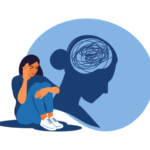York Region CBT Blog
Cristian Chereches. MSW, RSW, Psychotherapist Obsessive-Compulsive Disorder (OCD) stands as a multifaceted mental health challenge, impacting millions globally. While some aspects of OCD are commonly understood, there are lesser-known facets that stand proof of the intricacies of this condition. Here, we unveil 15 lesser-known facts about OCD. The prevalence of diagnosed OCD in…
Read MoreCristian Chereches, RSW, Psychotherapist Virtual Reality Exposure Therapy: A Modern Approach to Overcoming Obsessive-Compulsive Disorder Obsessive-Compulsive Disorder (OCD) is a condition characterized by intrusive thoughts and repetitive behaviors that can significantly impact an individual’s daily life. Traditional methods of treatment, such as Cognitive-Behavioral Therapy (CBT), Exposure and Response Prevention (ERP) and medication, have proven…
Read MoreCristian Chereches, RSW, Psychotherapist What is Obsessive Compulsive Disorder (OCD)? Obsessive-compulsive disorder (OCD) is a condition that affects millions of people worldwide. It is characterized by persistent, intrusive thoughts (obsessions) and repetitive behaviors (compulsions) that are intended to reduce anxiety. OCD can significantly impact a person’s daily life and can be extremely distressing, but…
Read MoreDr. Amanda Beaman, C.Psych Now that we’ve covered some basics with regard to the relationship between our thoughts and feelings , and some of the types of thoughts that underlie anxiety and depression, let’s discuss a specific, chronic pattern of thinking that is associated with anxiety-namely worry. Worry is something we all do. …
Read MoreDr. Aline Strong, C.Psych One of the basic principles of CBT is that our thinking has a significant impact on our mood. The ways in which we interpret our situations and perceive ourselves and others can influence how we feel. Imagine, for example, that I send a text to a friend and don’t get…
Read MoreDr. Amanda Beaman, C.Psych Welcome to the next set of articles in the Everyday Mental Health Series, Harnessing the Power of Our Thoughts. You may have already read the first articles in this series on planning. In these articles we discussed the ways that the deliberate and thoughtful planning can not only help us…
Read MoreDr. Amanda Beaman, C.Psych If you’ve been reading the planning series (articles 1 to 3), you’ve learned about a foundational habit that we review with most of our clients- Planning. You’ve learned that detailed planning of tasks and goals is not just for achievement purposes, but that the process has other mental health benefits. …
Read MoreDr. Aline Strong, C.Psych Anxious or worrisome thoughts have a particular way of manifesting themselves in our minds. One obvious feature of an anxious thought is its intrusive nature. It is seldom that you hear someone say that they wanted to worry about something. Often, worries appear without us wanting them to. They seem to…
Read MoreDr. Amanda Beaman, C.Psych In articles 1 and 2, we reviewed some of the unhelpful assumptions that may stop you from getting started planning your life, as well as some questions to help you articulate the changes/goals that will help you feel better. These articles helped set the stage for the steps in this article,…
Read MoreDr. Amanda Beaman, C.Psych In my first article about planning, I discussed some of the common assumptions that get in the way of this habit. If you haven’t read it already, it may be helpful to uncover some of your unhelpful assumptions before moving onto the steps of building the daily habit of planning your…
Read More









